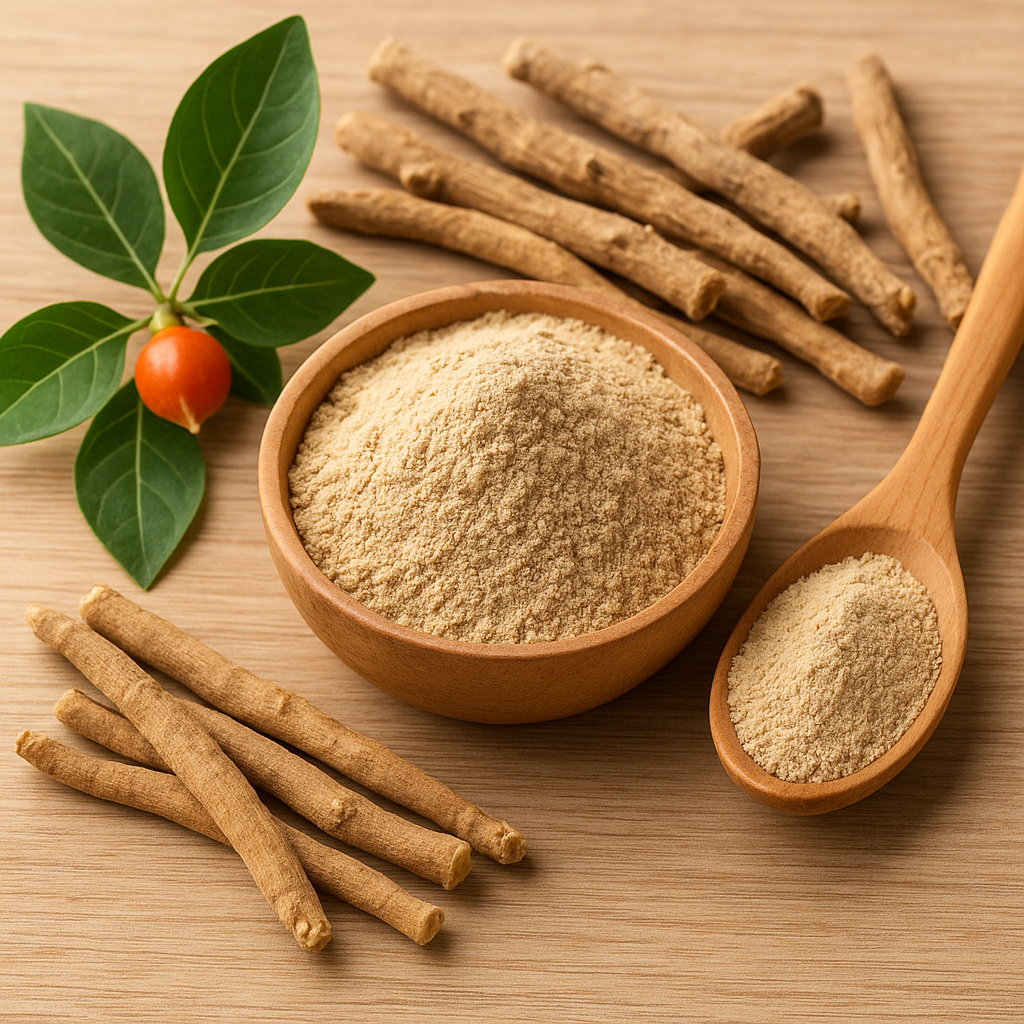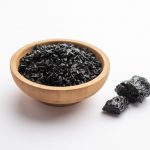In the world of natural wellness, few herbs have gained as much attention as Ashwagandha (Withania somnifera). Also known as Indian ginseng or winter cherry, this adaptogenic plant has been used in Ayurvedic medicine for over 3,000 years. Today, modern science is catching up, confirming many of its traditional uses and uncovering new health benefits.
What Is Ashwagandha?
Ashwagandha is a small shrub native to India, the Middle East, and parts of Africa. Its roots and leaves contain bioactive compounds such as withanolides, alkaloids, and saponins, which are believed to be responsible for its therapeutic effects.
As an adaptogen, ashwagandha helps the body adapt to stress, promoting balance in various physiological systems.
Proven Health Benefits of Ashwagandha
1. Reduces Stress and Anxiety
One of the most well-known effects of ashwagandha is its ability to lower stress. Clinical studies have shown that ashwagandha can significantly reduce levels of cortisol—the body’s main stress hormone—while improving overall mental well-being.
Study Highlight: A 60-day study on individuals with chronic stress found that those who took ashwagandha extract experienced a 44% reduction in perceived stress and a 28% reduction in cortisol levels.
2. Supports Cognitive Function
Ashwagandha may enhance memory, focus, and mental clarity. It promotes antioxidant activity in the brain and supports nerve regeneration, which may help protect against neurodegenerative diseases.
3. Improves Sleep Quality
Traditionally used as a sleep aid, ashwagandha appears to support better sleep by calming the nervous system. Several studies report improved sleep onset, quality, and duration in people taking the herb regularly.
4. Boosts Energy and Physical Performance
Athletes and active individuals may benefit from ashwagandha’s ability to increase strength and endurance. It’s believed to enhance muscle recovery and improve VO₂ max (the body’s ability to use oxygen during exercise).
5. Balances Hormones and Supports Fertility
In men, ashwagandha has been linked to improved testosterone levels and sperm quality. In women, it may help regulate hormones and reduce symptoms of PMS or menopause.
6. Supports Immune Function
By reducing stress and inflammation, ashwagandha indirectly supports a stronger immune system. Some studies suggest it may also increase white blood cell activity and antioxidant defenses.
How to Take Ashwagandha: Dosage and Safety
Ashwagandha is typically available in capsules, powders, tinctures, or teas. The most studied form is a standardized root extract (often KSM-66 or Sensoril®).
Recommended Daily Dosage:
- General stress & wellness: 300–600 mg of root extract (standardized to 5% withanolides), once or twice daily.
- Sleep support: 300 mg taken 1–2 hours before bedtime.
- Athletic performance: 500–1000 mg per day, often split into two doses.
Important Notes:
- It may take 2–4 weeks of consistent use to feel full effects.
- Ashwagandha is generally well-tolerated. Mild side effects can include upset stomach, drowsiness, or headaches.
- Consult your doctor before use if you are pregnant, breastfeeding, have autoimmune conditions, or take thyroid medication.
Final Thoughts
Ashwagandha is a time-tested herbal ally for managing stress, supporting vitality, and promoting overall well-being. With strong roots in ancient tradition and growing scientific support, this adaptogenic powerhouse offers a natural way to bring balance back into your body and mind.
Want to try ashwagandha? Look for high-quality, standardized extracts from trusted brands—and remember, consistency is key for lasting results.
References:
- Lopresti AL, Smith SJ, Malvi H, Kodgule R. A randomized, double-blind, placebo-controlled, crossover study examining the hormonal and vitality effects of ashwagandha (Withania somnifera) in aging, overweight males. Am J Mens Health. 2019;13(2):1557988319835985. https://pubmed.ncbi.nlm.nih.gov/30917788
- Chandrasekhar K, Kapoor J, Anishetty S. A prospective, randomized double-blind, placebo-controlled study of safety and efficacy of a high-concentration full-spectrum extract of ashwagandha root in reducing stress and anxiety in adults. Indian J Psychol Med. 2012;34(3):255–62. https://pubmed.ncbi.nlm.nih.gov/23439798
- Raut AA, Rege NN, Tadvi FM, et al. Exploratory study to evaluate tolerability, safety, and activity of Ashwagandha (Withania somnifera) in healthy volunteers. J Ayurveda Integr Med. 2012;3(3):111–4. https://pubmed.ncbi.nlm.nih.gov/23125505
- Salve J, Pate S, Debnath K, Langade D. Adaptogenic and anxiolytic effects of ashwagandha root extract in healthy adults: a double-blind, randomized, placebo-controlled clinical study. Cureus. 2019;11(12):e6466. https://pubmed.ncbi.nlm.nih.gov/31934457
- Auddy B, Hazra J, Mitra A, Abedon B, Ghosal S. A standardized withania somnifera extract significantly reduces stress-related parameters in chronically stressed humans: a double-blind, randomized, placebo-controlled study. JANA. 2008;11(1):50–6. https://pubmed.ncbi.nlm.nih.gov/23439798



